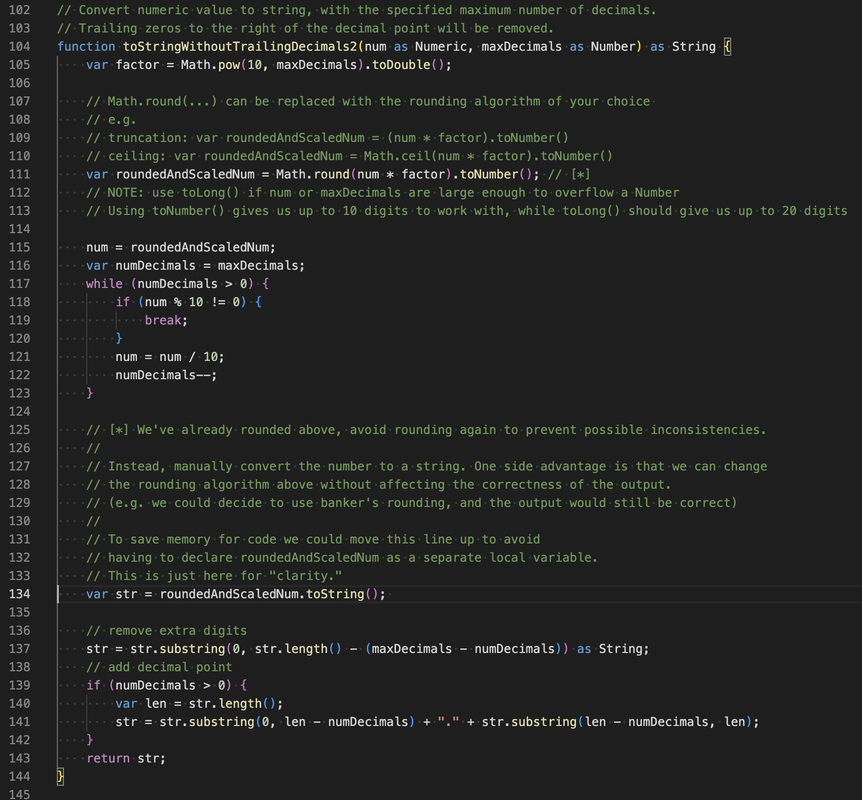So I want to replace "31.100" for "31.1" and "31.000" to "31" and I couldn't find any buitin function to do one so I ended up with this. Do you have a better one?
function stripTrailingZeros(value) {
if (value instanceof Lang.String) {
if (value.find(".") != null) { // Only mathers if we contain a decimal
var carray = value.toCharArray();
var i = carray.size() - 1;
for (; i > 0; i--) {
if (carray[i].equals('.')) { // If we reached the '.', we'll skip it too and stop so we don't drop zeros before '.'
i--;
break;
}
if (carray[i].equals('0')) { // Trailing zero? Keep going
continue;
}
break; // Not one of the above, so that's where we stop
}
value = "";
for (var j = 0; j <= i; j++) {
value += carray[j];
}
}
}
return value;
}



